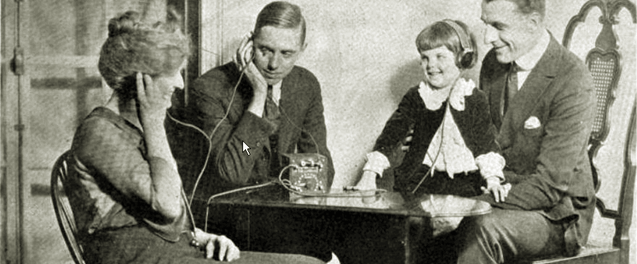
The BBC, an Auntie to be reckoned with
To listen to this post, click here –
On this day in 1922 the British Broadcasting Corporation was founded. Originally a consortium of private companies, some of whom were manufacturers of wireless sets, the BBC was granted the first public broadcasting licence in Britain.
Head of the corporation was a Scottish calvinist, John Reith, later Lord Reith. After a rocky start, the BBC was given a boost by the general strike of 1926 when newspapers could not be published. In 1927 the BBC was given status by a royal charter and has been a major force in the land ever since.
Today the corporation broadcasts around the world, on both radio and TV, and employs over 23,000 people. By the 1930s and 40s, the BBC was an integral part of most middle class lives, as much a part of the fabric of society as suburbia. It played a vital part during the Second World War.
Here is a poem by Rabindranath Tagore, Baby’s World, about a young view of the world.
I wish I could take a quiet corner in the heart of my baby’s very
Own world.
I know it has stars that talk to him, and a sky that stoops
Down to his face to amuse him with its silly clouds and rainbows.
Those who make believe to be dumb, and look as if they never
Could move, come creeping to his window with their stories and with
Trays crowded with bright toys.
I wish I could travel by the road that crosses baby’s mind,
And out beyond all bounds;
Where messengers run errands for no cause between the kingdoms
Of kings of no history;
Where Reason makes kites of her laws and flies them, the Truth
Sets Fact free from its fetters.
Today I ask that I will be happy with my place in society and not waste time on social climbing.
Photo credit: Radio World magazine, 1922
